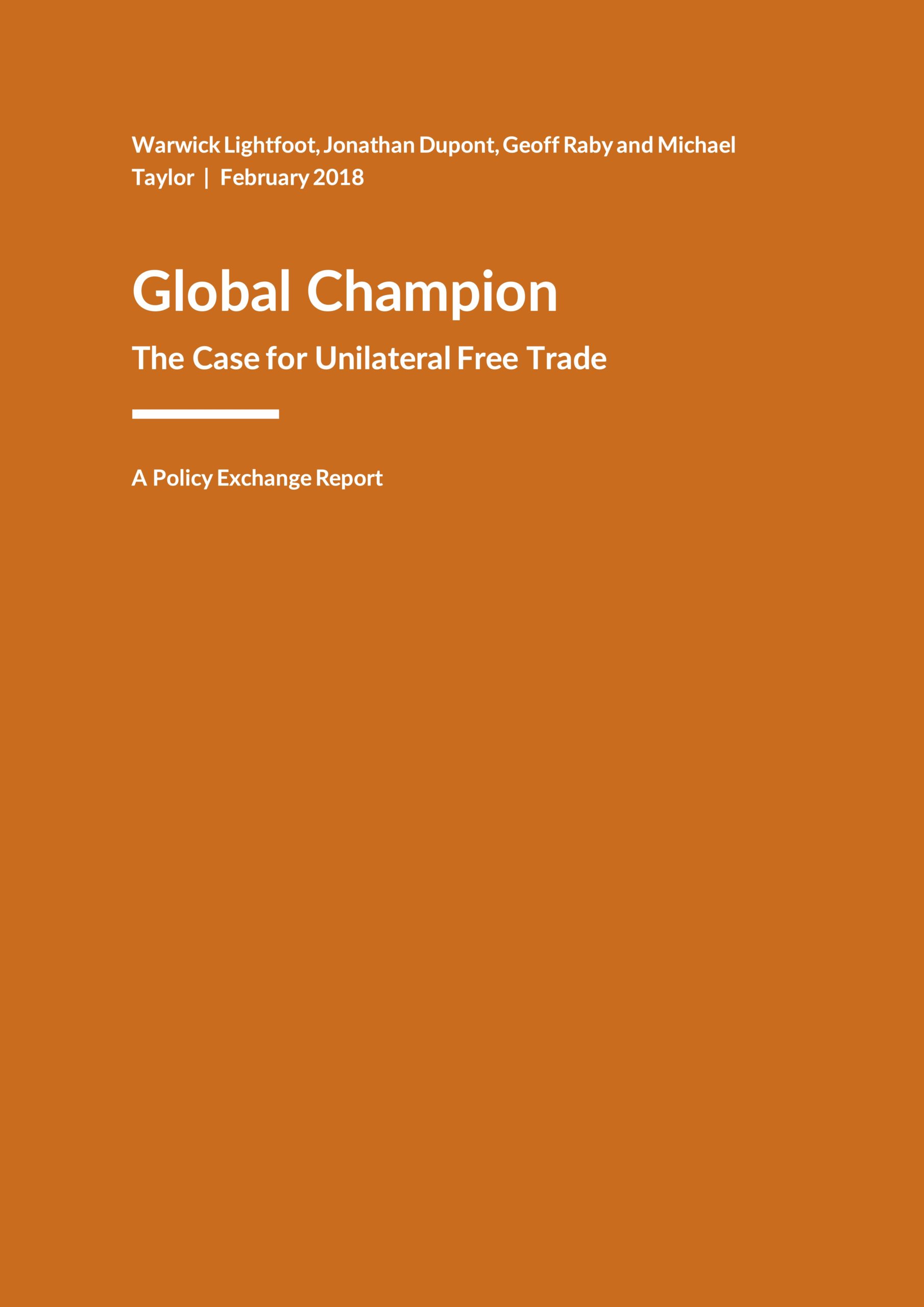
Global Champion: The case for unilateral free trade
Britain should unilaterally eliminate all our remaining tariffs to be a true champion of free trade after Brexit, according to Policy Exchange’s new report Global Champion: The Case for Unilateral Free Trade. Not only would this drive down prices for consumers and show true global leadership, it would also strengthen the chances of a strong deal with the EU if we have a clear ‘no deal’ alternative. We should focus on mutual recognition of regulation with trading partners, rather than complete harmonisation that could cut off future deals and slow innovation.
The report argues that attempting to maintain the position of current industries through tariffs instead prevents sectors from innovating and may harm consumers. For example, the car industry would benefit from the abolition of tariffs on components coming from outside the EU while consumers would benefit from the increased competition from international brands. Removal of tariffs could help the UK as a whole to benefit from the substantial disruption from the shift to electric and self driving vehicles in the coming decades.
In a Foreword, Alexander Downer, the outgoing Australian High Commissioner in London and Policy Exchange’s incoming Chairman, says:
“The argument for economies to be open to free trade is politically more important today than at any time since the 1960s. As advanced economies struggle to raise productivity, the spur to domestic competition that trade provides is arguably more pressing than ever.
“Trade is not a zero-sum equation. In the decades ahead all major economies should remove their tariffs and open their markets to competition. As the UK once again takes its place at the WTO it should take the opportunity lead by example and remove its tariffs. Other economies should follow that example if they want to increase the prosperity of their people.”
Policy Exchange’s Director of Economics Warwick Lightfoot, the report’s lead author, said:
“Unilateral free trade would reduce the cost of living, boost productivity and demonstrate true moral leadership by helping developing countries access British customers better. Trade liberalisation is a global public good and like other global public goods like international aid or fighting climate change, it needs some nations to take a leadership role; this is what Britain should be doing.
“This is one of the few areas of consensus in economics: 96 per cent of economists across the political spectrum from left to right support free trade and the principle of comparative advantage, and governments need to catch up. Estimates suggest that the whole world halving its tariffs could see a 2.6% boost to UK GDP and that unilaterally abolishing tariffs could reduce household bills by £130 a year
“Despite its rhetoric the EU is a protectionist bloc, shielding its farmers and other producers from competition with high tariffs. This not only imposes costs on consumers but also stifles innovation and slows productivity growth. When Britain leaves the EU, we have the opportunity to set ourselves free from its protectionist approach to the benefit of British consumers and our economy.”




